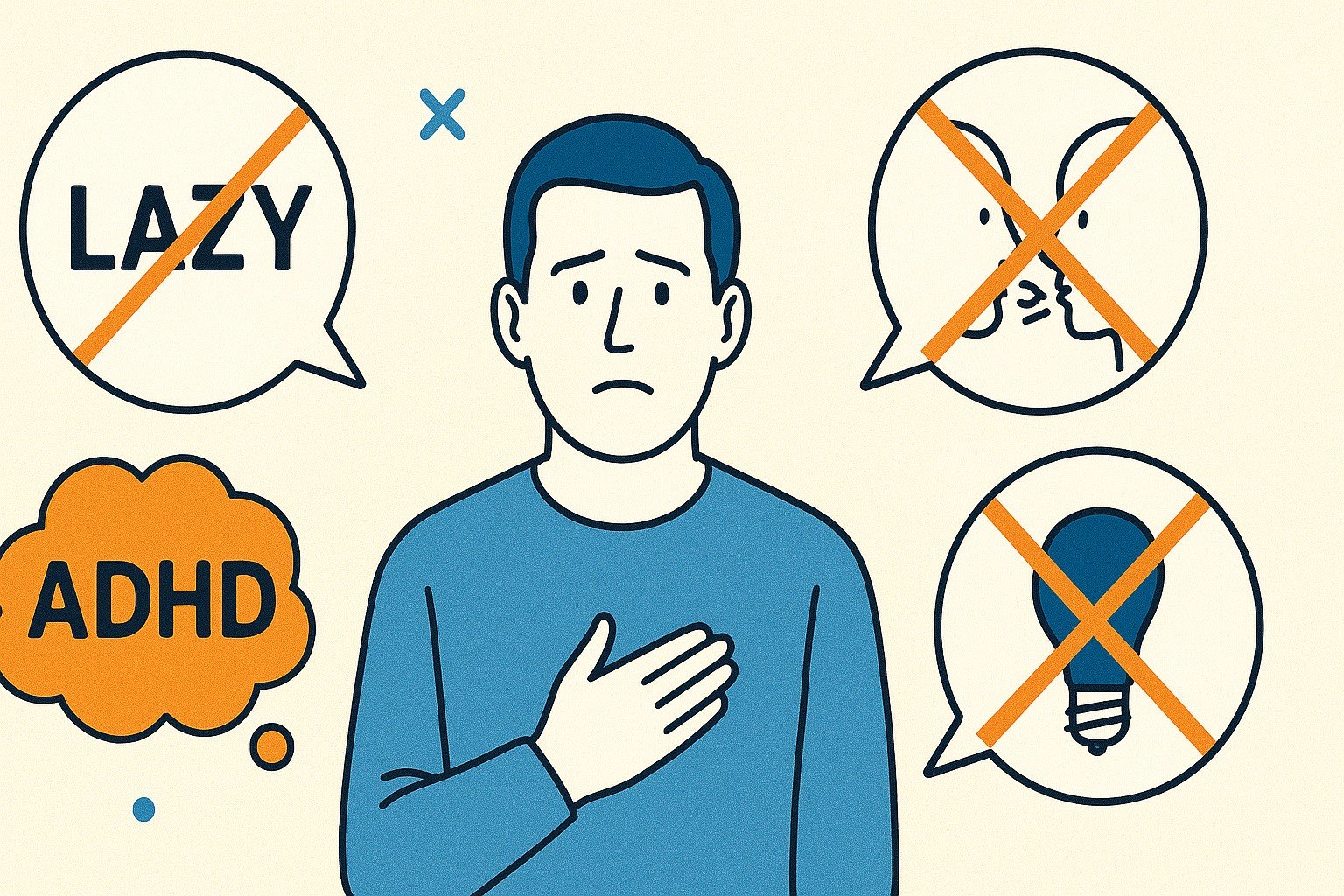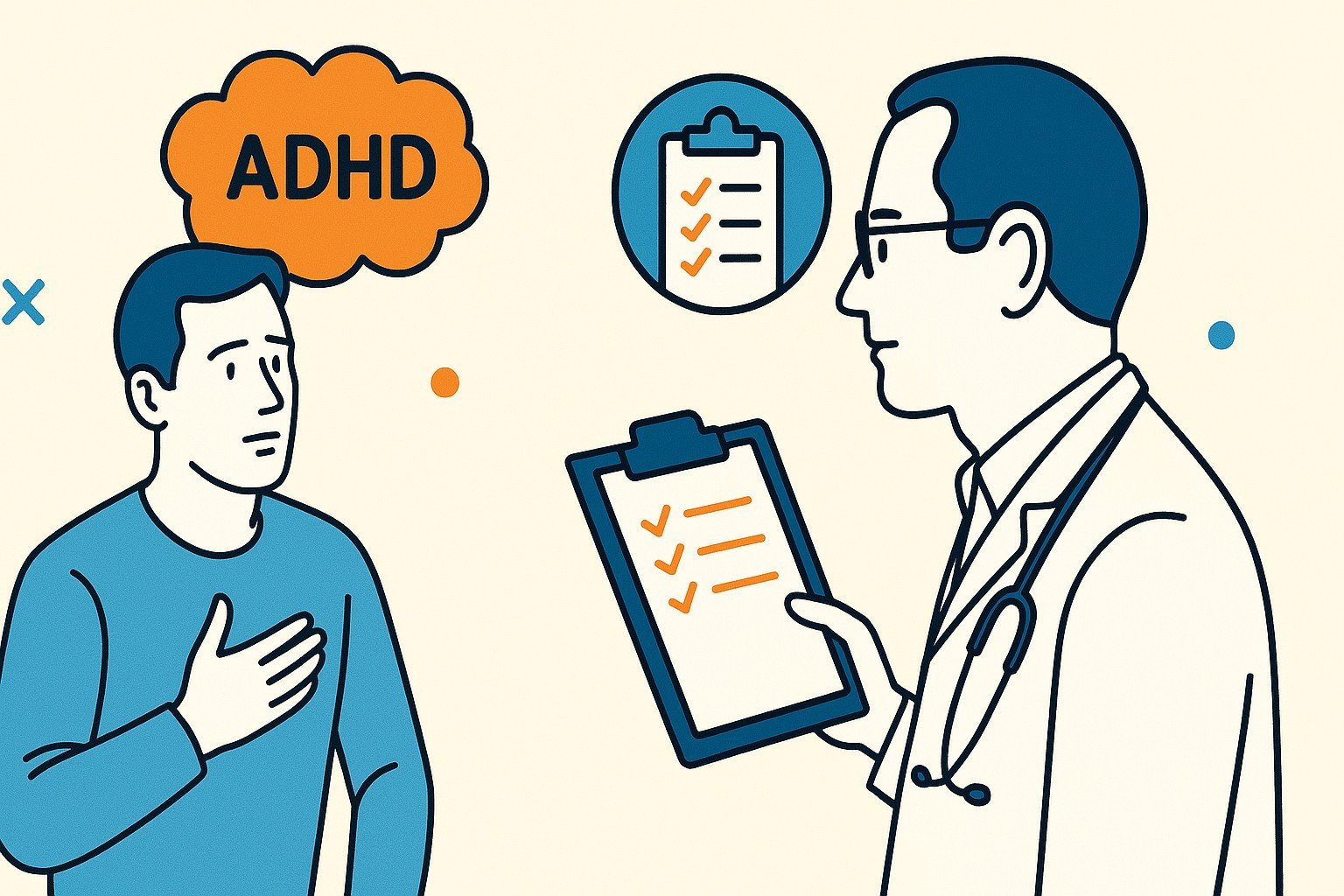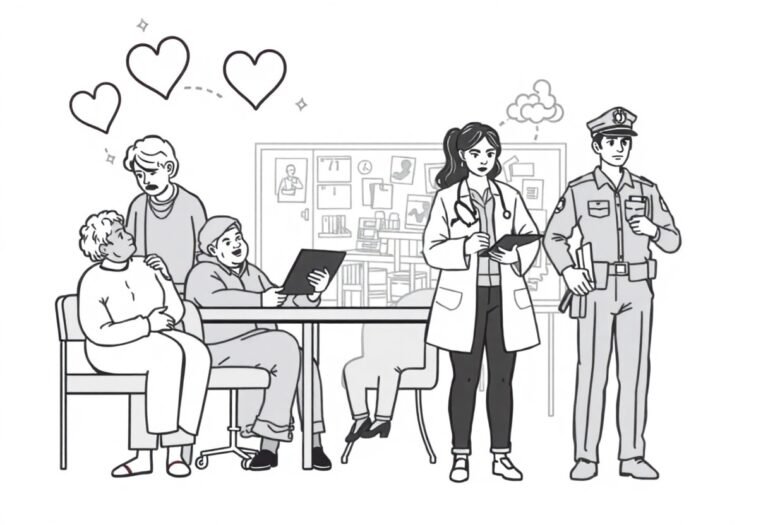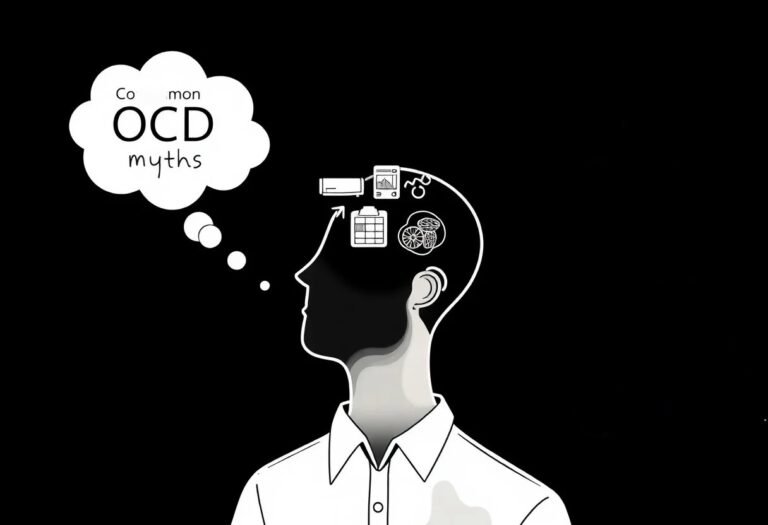Getting an ADHD Diagnosis in Adulthood – What to Expect
Diagnosis of ADHD in adulthood can be a transformative step in understanding your behaviour and experiences. You may encounter a series of assessments and questionnaires designed to evaluate your symptoms and their impact on your life, particularly in the context of an ADHD diagnosis in adulthood. It’s important to approach this process with openness and honesty, as the results can lead to tailored strategies that improve your daily functioning. While there may be some challenges along the way, receiving a diagnosis can ultimately unlock insights and tools that enhance your well-being and quality of life.
Key Takeaways:
- Obtaining an ADHD diagnosis as an adult often involves a comprehensive assessment, including interviews, questionnaires, and review of medical history.
- It is imperative to provide detailed examples of how ADHD symptoms have affected various aspects of your life, such as work, relationships, and daily tasks.
- Initial consultations may occur with either a psychologist, psychiatrist, or a specialised ADHD clinic, depending on local availability and resources.
- Be prepared for potential follow-up appointments and assessments, as diagnosing ADHD can be a multi-step process that may take time.
- Understanding the diagnostic criteria and your personal experiences with ADHD symptoms can enhance the conversation with healthcare professionals during your assessment.
Understanding ADHD in Adults
A comprehensive understanding of ADHD in adults is vital for recognising its impact on daily life. Although often perceived as a childhood disorder, ADHD can persist into adulthood, presenting unique challenges. Adults with ADHD typically experience difficulties with organisation, time management, and maintaining focus, which can affect personal and professional relationships. Acknowledging these experiences enables better coping strategies and support systems.
Common Symptoms
ADHD symptoms in adults can manifest as inattention, impulsivity, and hyperactivity, but may not always be obvious. You might struggle with staying organised, completing tasks, or following through on commitments. Additionally, emotional regulation challenges and difficulty in prioritising tasks can significantly impact your daily functioning and well-being.
Misconceptions about Adult ADHD
On the surface, many people believe that ADHD only affects children or that it is merely a result of poor parenting. This misconception can discourage you from seeking a diagnosis and understanding your experiences.
Also, thinking that ADHD is a sign of laziness or a lack of willpower can lead to stigma and detachment from supportive resources. It’s important to understand that ADHD is a legitimate neurodevelopmental disorder that requires acknowledgement and support. You may feel overwhelmed by personal struggles, but seeking an official diagnosis can lead to effective strategies and positive changes in your life.
The Importance of a Proper Diagnosis
Any adult seeking an ADHD diagnosis needs to understand that a proper diagnosis is vital for effective management of the condition. It not only clarifies the challenges you may face but also opens the door to appropriate treatment options. Without an accurate diagnosis, you risk misinterpreting symptoms, leading to frustration and ineffective coping strategies.
Impact on Daily Life
To manage your daily life effectively, understanding how ADHD manifests is important. Symptoms such as disorganisation, impulsivity, and inattention can significantly disrupt routine activities, affecting your personal and professional relationships. An accurate diagnosis helps you identify these challenges and seek tailored strategies to improve your daily functioning.
Benefits of Diagnosis and Treatment
Benefits of obtaining a diagnosis include greater insight into your condition and access to personalised treatment options. These can alleviate symptoms and improve your overall quality of life.
Understanding the benefits of treatment can empower you to take control of your life. With the right diagnosis and intervention, you can experience increased focus, better organisation, and enhanced emotional regulation. Therapeutic strategies, including behavioural therapy and medication, can transform your daily routine, allowing you to pursue your goals with confidence. Moreover, joining support groups can foster a sense of community, making you realise you are not alone in your journey.
The Diagnostic Process
Many adults seeking an ADHD diagnosis will undergo a comprehensive and structured diagnostic process. This typically involves several stages, including an initial consultation with a mental health professional, followed by in-depth evaluations. The way you present your symptoms and personal history plays a significant role in understanding your condition, setting the stage for the most accurate diagnosis.
Initial Consultation
With the initial consultation, your journey towards understanding ADHD begins. During this meeting, you will discuss your symptoms, behavioural patterns, and any relevant medical history. It’s an opportunity for you to express your concerns and for the professional to gauge your needs, which helps establish a foundation for further assessment.
Comprehensive Evaluation
Among the stages of diagnosis, a comprehensive evaluation is vital in identifying ADHD in adults. This evaluation may include a combination of behavioural assessments, self-reports, and standardised questionnaires, taking into account your entire life history to obtain a clearer picture.
Indeed, a comprehensive evaluation is vital for an accurate ADHD diagnosis. This process not only examines your current symptoms but also looks into your educational and occupational history, medical background, and potential co-existing conditions. The evaluation may involve input from family members or others who can provide insights into your behaviour over the years. This holistic approach ensures that all aspects of your experience are considered, leading to a more informed diagnosis and appropriate treatment plan tailored to your needs.
Assessment Tools and Methods
After obtaining a referral to a specialist, the next step in the ADHD diagnosis process involves various assessment tools and methods designed to evaluate your symptoms and challenges. These tools not only aid in confirming a diagnosis but also help in understanding how ADHD affects your daily life. Typically, a combination of standardised questionnaires, clinical interviews, and observation is used to gather a comprehensive view of your experiences.
Standardised Questionnaires
Below are commonly used standardised questionnaires that assess ADHD symptoms and behaviours. These tools comprise structured questions that you will answer, providing valuable insights into your attention span, impulsivity, and hyperactivity, as well as revealing how these traits impact your daily functioning. Your responses are compared against normative data to determine the severity of your symptoms.
Clinical Interviews
Among the various methods, clinical interviews carry significant weight in the diagnostic process. This format allows for an in-depth exploration of your personal history, behavioural patterns, and emotional well-being, helping practitioners to gain a comprehensive understanding of your challenges.
For instance, during a clinical interview, the clinician will ask you detailed questions about your childhood experiences, academic performance, and relationships. It is important to be honest and thorough in your responses, as this information will provide the clinician with key insights into your symptoms. Having the support of a close friend or family member during this session can also be beneficial, as they can help recall incidents or behaviours you may not fully recall. Understanding your strengths and weaknesses in various areas of your life will guide the clinician in formulating a tailored treatment plan should you receive a diagnosis.
Collaborating with Professionals
Keep in mind that collaborating with professionals is a necessary step in obtaining an accurate ADHD diagnosis. You will work closely with various specialists who can provide valuable insights and assessments. This process may include sharing your history, discussing symptoms, and undergoing specific tests to ensure a comprehensive evaluation of your condition.
Psychiatrists vs. Psychologists
Collaborating with either a psychiatrist or a psychologist can help clarify your understanding of ADHD. Psychiatrists are medical doctors who can prescribe medication and diagnose mental health conditions, while psychologists specialise in therapy and can conduct detailed assessments. Considering what services you feel you need most will help guide your choice between the two.
Involvement of Family and Friends
Along the journey to your diagnosis, involving family and friends can provide additional support and perspective. Engaging those close to you allows them to share insights about your behaviours and experiences, which can assist professionals in forming a more accurate picture of your condition.
Consequently, your loved ones can play an important role throughout this process. They may observe patterns in your behaviour that you might overlook, offering a broader context for your symptoms. Their emotional support can also help ease any anxiety you may feel during assessments and evaluations. While it may feel vulnerable to discuss your struggles with them, this involvement can foster stronger relationships and create an understanding environment for future discussions about ADHD.
Treatment Options After Diagnosis
For individuals diagnosed with ADHD in adulthood, a range of treatment options are available to help manage symptoms and improve quality of life. Tailoring these approaches to your personal needs is vital for achieving the best outcomes. Commonly used treatments include medication, therapy, and lifestyle changes, each contributing uniquely to your overall well-being.
Medication
Beside behavioural interventions, medication may be prescribed to help manage your ADHD symptoms effectively. Stimulants like methylphenidate and amphetamines are commonly used, as they can enhance focus and reduce impulsivity. Non-stimulant options, such as atomoxetine, are also available. It’s important to regularly consult with your healthcare provider to monitor effectiveness and side effects.
Therapy and Lifestyle Changes
Treatment options may also incorporate therapy and lifestyle changes to support your journey in managing ADHD. Options such as cognitive behavioural therapy (CBT) can help you develop coping strategies, while mindfulness practices may enhance concentration. Additionally, implementing a consistent routine, improving sleep hygiene, and maintaining a balanced diet can significantly impact your symptom management and overall mental health.
Options for therapy and lifestyle alterations are extensive and can profoundly influence your daily life. Engaging in cognitive behavioural therapy may provide you with vital tools for coping with challenges, while mindfulness techniques can cultivate awareness and focus. Regular exercise is another beneficial factor that can boost your mood and energy levels. It’s vital to experiment with different lifestyle adjustments to identify what best supports your management plan and fosters your success.
Summing up
Now that you have an understanding of what to expect when seeking an ADHD diagnosis in adulthood, it’s vital to approach the process with an open mind and awareness of the benefits it can bring. You’ll engage in comprehensive assessments, and it’s imperative to be honest about your experiences. The insights gained can lead to effective management strategies, helping you enhance your daily life. Embrace this opportunity for self-discovery, as it can significantly impact your understanding of yourself and your path forward.
FAQ
Q: What are the signs and symptoms of ADHD in adults?
A: Adults with ADHD may experience a variety of signs and symptoms, including difficulty maintaining attention, organisational challenges, trouble prioritising tasks, impulsivity, restlessness, and emotional dysregulation. Other common indications include forgetfulness, chronic lateness, and difficulties in managing time effectively. It is crucial to consider both behavioural patterns and emotional aspects when evaluating potential ADHD symptoms in adulthood.
Q: How can I prepare for an ADHD assessment?
A: Preparing for an ADHD assessment involves gathering relevant information about your personal and medical history. You may want to document specific examples of behaviours or challenges you have faced in various aspects of your life, such as work, relationships, and daily routines. Additionally, seek to obtain any previous reports or evaluations that could provide context for your current situation. Having a clear understanding of your experiences will help the clinician make a more accurate diagnosis.
Q: What can I expect during the diagnostic process for ADHD?
A: The diagnostic process for ADHD generally involves a comprehensive evaluation conducted by a qualified professional, which can include interviews, standardised questionnaires, and behavioural assessments. The clinician will explore your medical history, current symptoms, and how these behaviours affect your daily life. It may also involve gathering information from family members or close friends. This thorough approach helps to differentiate ADHD from other conditions that may present similar symptoms.
Q: Are there any specific tests used to diagnose ADHD in adults?
A: While there is no single test that definitively diagnoses ADHD, clinicians often use a combination of structured interviews, self-report questionnaires, and behavioural rating scales. These assessments help to evaluate various aspects of attention, focus, and impulsivity. It is common for professionals to gather information from multiple sources to ensure a comprehensive understanding of the individual’s experiences and behaviours across different environments.
Q: What are the potential treatments available after an ADHD diagnosis?
A: After receiving an ADHD diagnosis, individuals may explore several treatment options tailored to their specific needs. Common approaches include medication, such as stimulants or non-stimulants, which can help manage symptoms. In addition to medication, behavioural therapy, cognitive behavioural therapy (CBT), or coaching may be effective in providing strategies to enhance organisation, time management, and emotional regulation. Together, these treatments aim to improve overall functioning and quality of life.








